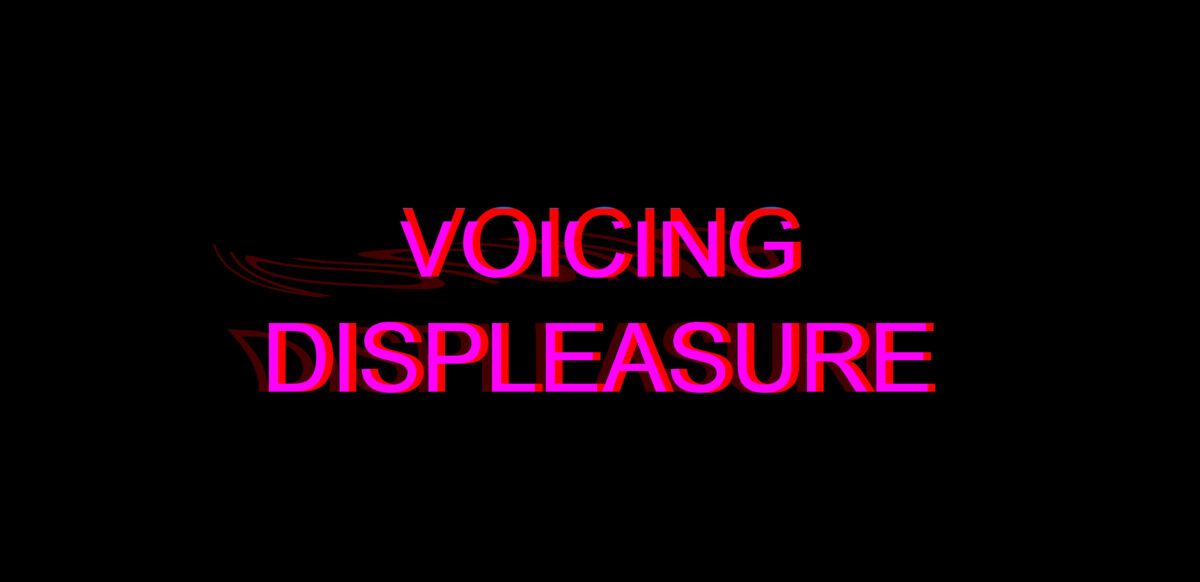You are not a blowjob in the rain. You are not a piece of meat on the bar’s toilet tiles. You are the deepest voice of Southeast Europe.
”You are a boy, aren’t you?” I was asked by Frauenarzt (gynecologist) on the first call I made after moving to Germany. I wanted my female, dear friend down there to be healthy, but my ultra-deep, male voice transformed everything into an uncomfortable phone conversation – confusion about my gender. Far away from being insulted, I was actually glad that she showed her disorientation in our dialogue. I never thought that this masculine polished, deep tone coming from my stomach, being transmitted through my mouth could be my own defense mechanism against the enemies. My own complaining tool. A voice fighting the whole army – the voice winning the war. I must admit, I was bitter and partially heartbroken that I could not be a princess of my father’s kingdom, neither could I be the most wanted girly girl in my classroom. All my honeyed and nectarous power was visible much later after puberty tore down the confused teenager.
The voice became both an important and powerful tool of mine over the years. There is so much to tell. So much to complain about. Screaming in the holes of the system, spitting on their streets, and yelling whenever I feel like it. My voice is my medium. My voice is my capital. My masculine persona was born within it.
Let’s talk about boys. Voice of the boys. Boys for the voice. Voicing the boys. The ones that I love, the ones that abandon me, scared me, the ones that empowered me, satisfied me, treated me as an object, terrified me, loved me, protected me, and let me be the version of Nadja I am, while writing this.
I will tell you about the act of loudness after I tell you the ”Mustard bastard”.
MUSTARD BASTARD
My fingers in your hair, he said.
My hair was tied up in a high ponytail so that it would not fall into miniature portions of so-called canapes. I would cut the bread into slightly larger croutons. I would cover a slice of bread very precisely with yellow, freshly produced mustard. The knife I used was the same one used for butter with a carved brand on the bottom of the handle.
He said: I would like to tie your hands up around the radiator and feed you. I will grab your hair and pull it until you start crying. I will spread it all over your body.
My favorite color has always been yellow. My grandmother bought me a yellowish backpack for the first day of school. She said that I look like the sun and that the whole world rotates around me.
He would put my yellow backpack on the floor and take my clothes off – to explore the sun’s rays. My skin is cowered while my 15 old body is shivering. When he finished splashing mustard over my belly I would cry from the pain, but he would take me in his lap calling me his little sun. The pain would pass soon.
Bon Appetit! My mother prefers eating hot dogs without mustard while I eat them with.
I can’t tell why
but I love yellow
I can’t really know
Is this taste mellow
if you plant it,
it will surely grow
is this taste bitteror is it just the snow?
he talks about my body
to inhabit it,
have a sip
capture it
matter it
body skip
imagine it.
He likes my mustard,
Bon Appetitt.
THE ACT OF LOUDNESS
These so-called mustard bastard made my voice silent many, many times. This phenomenon is called the loss of voice and it is a real psychological disorder. Indeed.
A girl from Yeman was born from rape, believing that rape is the only thing she deserves. An older man from the park was touching his genitals 2 meters from my 17 years old presence. Females ages 16-19 are 4 times more likely than the general population to be victims of rape, attempted rape, or sexual assault. Two middle-aged men were jerking off in front of me on the bus 706 in Belgrade, in the middle of the day. In Nicaragua, between 1998 and 2008, police recorded 14,377 cases of sexual assaults, with more than two-thirds of reports involving girls under the age of 17. A 50 years old man told me that he will tie my hands around the radiator in the supermarket, while I was selling the mustard. Every 73 seconds, an American is sexually assaulted.
The loss of voice is an experience when a person has something she or he feels is important to say but does not say it. Often this refusal to speak one’s mind is linked to feelings of inadequacy, fear of rejection, or fear of humiliation. Once adolescence is in full force, this inner, authentic voice is rarely shared with anyone, except for a few people whom girls trust. Outside of these close and trusting interactions, girls use an “acceptable” voice – one that expresses what they assume others expect them to think and feel.
Girls must use all the masculinity. Girls must scream stronger, dig deeper and spit harder.
I dig, dig, dig
I plant,
I am a juicy fig.
Take me, try me, do not jig
I smell like a bloody rose,
Look at me!
I dig, dig, dig
and it grows.
Should I be loud?
I dig,
dig for the crowd.
I dig here, I dig now.
You are the one that is endowed.I will scream for the supreme.
Am I allowed?
Is this bitterness in my mouth?
It pulses and shelters. What about?
I dig, dig,
and it sprouts.
VOICING DISPLEASURE #1
Text, video/performance, illustration: Nadja Kracunovic (Nađa Kračunović)


